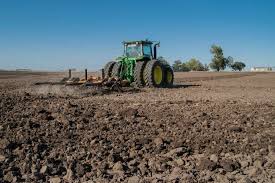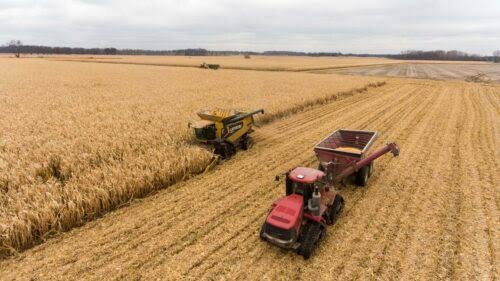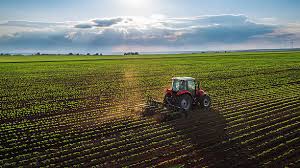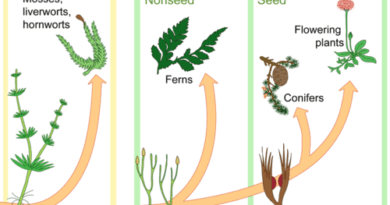How to Find Land for Farming
Finding land for farming is a crucial step in beginning a journey into agriculture. It involves locating a suitable piece of earth where crops can be cultivated or animals can be raised. The process requires careful consideration of various factors to ensure the land is conducive to successful and sustainable farming.
Firstly, it’s essential to assess the soil quality. Good soil is the foundation of a productive farm. Farmers look for land with fertile soil that is rich in nutrients, ensuring healthy plant growth. Soil testing may be conducted to analyze its composition and determine its suitability for specific crops.
Climate plays a significant role in farming success. Different crops thrive in different climates, so selecting land with a climate suitable for the desired crops is vital. Some crops prefer warmer temperatures, while others thrive in cooler climates. Understanding the local climate patterns is crucial for planning the farming calendar and minimizing the impact of adverse weather conditions.
Water availability is another critical consideration. Access to a reliable water source is essential for irrigation and livestock. Land located near rivers, lakes, or with access to groundwater is often preferred. Water scarcity can severely hinder agricultural activities, so ensuring a consistent water supply is crucial for sustainable farming.
Proximity to markets and transportation is a practical consideration. Farmers need to consider how easily they can transport their produce to markets or processing facilities. Access to transportation networks reduces logistical challenges and ensures that the farm’s products can reach consumers efficiently.
Land size is also a key factor. The size of the land should align with the intended scale of farming operations. Small-scale farmers may opt for smaller plots, while larger agricultural enterprises may require more extensive tracts of land. Proper planning ensures that the farm’s size is conducive to efficient and profitable operations.
Environmental considerations are increasingly important in modern farming. Sustainable and eco-friendly practices are encouraged to minimize the environmental impact of agriculture. Farmers may seek land that allows for the implementation of such practices, including organic farming methods and conservation measures.
Local regulations and zoning laws must be taken into account. Different areas may have specific regulations governing agricultural activities. Understanding and complying with these regulations are essential to avoid legal issues and ensure the farm operates within the bounds of the law.
Additionally, finding land for farming involves a thoughtful evaluation of soil quality, climate, water availability, proximity to markets, land size, environmental considerations, and adherence to local regulations. This careful consideration ensures that the chosen land is well-suited for successful and sustainable farming operations.
Read Also: Rabbit Reproduction: Pregnancy, Kindling, Sexing, and Weaning
How to Find Land for Farming

Finding suitable land for farming is an essential step for anyone looking to start or expand a farm. Here, we’ll explore some straightforward steps to help you navigate the process in simple terms.
1. Identify Your Needs: Before you begin your search, make a list of your farming requirements. Consider factors such as the type of crops or livestock you plan to raise, the climate suitable for your endeavors, and the size of the land needed.
2. Budget Planning: Determine your budget for purchasing or leasing land. Factor in not only the initial cost but also ongoing expenses like water, electricity, and maintenance. This will help you narrow down your options.
3. Local Research: Explore the areas where you’re interested in finding land. Talk to local farmers, visit agricultural extension offices, and attend community meetings. Local knowledge can provide insights into the soil quality, climate, and farming practices of the region.
4. Online Resources: Utilize online platforms and agricultural listings to search for available land. Websites and apps dedicated to real estate often have filters that allow you to narrow down your search based on location, size, and other specific requirements.
5. Government Programs: Check with local agricultural authorities and government programs that support farmers. Some regions offer incentives, subsidies, or grants to encourage agricultural development. Understanding these programs can help you make informed decisions.
6. Soil Testing: Once you’ve identified potential land, conduct soil tests. This simple process helps determine the soil’s fertility and composition, crucial factors for successful farming. Local agricultural extension offices can assist with soil testing.
7. Accessibility and Infrastructure: Evaluate the accessibility of the land. Consider proximity to markets, availability of transportation, and the presence of essential infrastructure like water sources and electricity. These factors can significantly impact the practicality of your farming venture.
8. Zoning and Regulations: Check local zoning regulations and land-use policies. Ensure that the land is designated for agricultural purposes and that there are no restrictions that might hinder your farming activities. Local government offices can provide information on these regulations.
9. Climate Considerations: Understand the climate patterns of the region. Different crops and livestock thrive in specific climates. Ensure that the land you choose aligns with the weather conditions suitable for your agricultural pursuits.
10. Visit the Land: Before finalizing any decisions, physically visit the potential land. Walk the property, assess its topography, and observe any existing structures. This firsthand experience can reveal aspects that might not be apparent through online research alone.
In addition, finding land for farming involves a thoughtful and systematic approach. By considering your needs, conducting research, and utilizing available resources, you can increase your chances of securing a piece of land that aligns with your agricultural goals.
Read Also: Rabbit Health and Diseases and How to Minimize Major Stresses
Benefits of Finding Land for Farming

Finding land for farming is crucial for several reasons, highlighting the importance of securing suitable agricultural space:
1. Food Production: Agricultural land is the foundation of food production. Finding suitable land allows individuals, communities, and nations to cultivate crops and raise livestock, contributing to a stable and sustainable food supply.
2. Food Security: Investing in agricultural land contributes to food security by enabling the production of crops and livestock. This helps meet the growing demand for food and ensures a stable supply chain.
3. Economic Opportunities: Farming provides economic opportunities, creating jobs and supporting livelihoods in rural areas. It contributes to the overall economic development of communities.
4. Self-Sufficiency: Owning or leasing land for farming allows individuals or communities to become more self-sufficient. They can produce their own food, reducing dependency on external sources.
5. Environmental Stewardship: Well-managed agricultural land practices can contribute to environmental stewardship. Techniques such as crop rotation and sustainable farming methods help preserve soil health and biodiversity.
6. Community Development: Farming activities often foster community development. Local farmers may collaborate, share resources, and participate in cooperative initiatives, strengthening the social fabric of the community.
7. Health Benefits: Access to fresh, locally grown produce enhances the availability of nutritious food. This, in turn, can positively impact the health and well-being of individuals within the community.
8. Green Spaces and Land Conservation: Farming helps preserve green spaces and contributes to land conservation. Agricultural practices can prevent urban sprawl and maintain the natural landscape.
9. Diversification of Income: Farming allows for the diversification of income streams. Farmers can generate revenue not only from selling crops or livestock but also through agro-tourism, farmer’s markets, or value-added products.
10. Educational Opportunities: Farming provides educational opportunities for individuals interested in agriculture. This knowledge transfer contributes to the sustainability of farming practices across generations.
11. Cultural Preservation: Agricultural activities often play a significant role in preserving cultural heritage. Traditional farming practices, crops, and livestock breeds contribute to the cultural identity of communities.
12. Carbon Sequestration: Certain farming practices, such as agroforestry and cover cropping, contribute to carbon sequestration. This helps mitigate the impact of agriculture on climate change.
13. Rural Landscape Preservation: Farming helps maintain the rural landscape, preserving scenic beauty and cultural landscapes that are often valued by both local communities and tourists.
14. Supporting Biodiversity: Well-managed farms can support biodiversity by providing habitats for various plant and animal species. This contributes to overall ecosystem health.
15. Innovation and Technology Adoption: The pursuit of efficient and sustainable farming often leads to the adoption of innovative technologies. This can drive advancements in agricultural practices.
16. Global Agricultural Contribution: Agricultural activities on a local level contribute to the global agricultural system, addressing worldwide food needs and supporting the interconnectedness of economies.
In summary, finding land for farming brings about numerous benefits ranging from economic opportunities and self-sufficiency to environmental stewardship and community development. It plays a vital role in shaping both local and global landscapes.
Read Also: Anthropogenic Sources of Pollution









